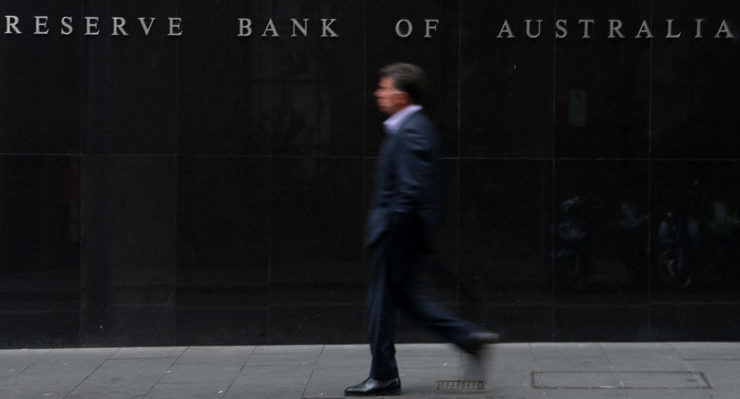
The Australian economy will grow by enough in 2021 to regain its pre-COVID level by the end of the year before slowing in 2022, according to the first World Economic Outlook (WEO) for the year from the International Monetary Fund (IMF). But, as always, the optimistic forecast for us and the rest of the world all hangs on the current COVID vaccination campaigns across the globe succeeding.
Inflation will be more of a problem for the economy this year judging by the weak data for the December quarter and 2020 released this morning by the Australian Bureau of Statistics (ABS).
The headline rate for the quarter and 2020 as a whole was 0.9%, way below the Reserve Bank’s target range of 2% to 3% over time. The underlying rate of inflation tracked by the Reserve Bank’s favoured trimmed mean and weighted median measures was 0.45% in the quarter and 1.3% for the year.
Much of that was made up of rises triggered by government policies (and some falls as well). For example the ABS estimated the impact of the reintroduction of the old child care charges would add 0.3% to the December quarter CPI, but be offset by a change to WA power costs (a fall of 7.5%). Higher taxes on tobacco added more than 12% to the CPI in the quarter and was the biggest rise for the year.
This reading means the Reserve Bank will not be tightening monetary policy any time soon — not for years. The IMF sees Australian inflation this year of 1.3%, not much higher than the 2020 outcome and again confirming that the absence of inflationary pressures remains a concern for the RBA. Without the impact of some of the government charges, disinflation remains a worry to some parts of the economy. Inflation will remain substantially weaker than many nascent inflationistas in the markets and business media think.
The RBA’s current policy stance is to wait and watch to see if and when inflation returns to the 2% to 3% range and how long it remains in that range (“sustainably” as the latest RBA minutes in December put it). As the minutes read:
The board remains committed to not increasing the cash rate until actual inflation is sustainably within the 2 to 3% target range. For this to occur, wages growth would have to be materially higher than recent levels.
The IMF’s optimism and today’s CPI reading (headline and core readings) from the ABS will not change that stance.
In its latest WEO the IMF said Australia contracted by 2.9% in 2020, a vast improvement on the 4.2% slump forecast in the October edition of the WEO. It is also much better than the 3.5% contraction forecast by the IMF for the world as a whole. Early data shows China’s economy grew 2.3% last year and the South Korean economy contracted by 1% in 2020 — the worst performance in 23 years.
But while the IMF sees global growth bouncing back strongly in 2021 with estimated growth of 5.5%, Australian growth of 3.5% will underperform the rest of the world because our rebound was stronger in the final months of 2020. Australian growth is then forecast to fade to a still solid 2.9% in 2022 (which is up 0.1% from the October forecast). That will still be substantially faster than the 1.9% rate in 2019 but slower than the rest of the world.
Global growth of 5.5% is forecast for 2021, an increase of 0.3 percentage points from the October forecast, thanks to rising hopes of a vaccine-powered rebound later this year and added policy support (stimulus spending) in the United States, Japan, and a few other large economies. The IMF says it could be more if the US Congress passes the current US$1.9 trillion stimulus proposal from the Biden administration which could add 5% to US growth over the next three years.
The IMF forecast gives the Morrison government more ammunition to finalise and end JobKeeper and JobSeeker and divert the money to other sectors, such as tourism and travel. But all this optimism is highly conditional and dependant on the growing vaccination campaigns across the world both working, and proving to be effective enough to reassure consumers, businesses, and governments.
The fund’s chief economist, Gita Gopinath, told a Washington media briefing that “we are living in highly uncertain times … A lot depends on this race between a mutating virus and vaccines, and how much policy support can hold up”. Too true in Australia, despite the optimism.








It’s not looking good, Glenn. Don’t swallow the government and IMF kool aid. Read your colleague Alan Austin today for a start.
The growth predicted is crap growth, in insecure work, in the gig economy, in the labour hire world where workers are reduced to zombies. All the benefits of this so-called growth is going to the plutocrats, or kleptocrats, who currently rule our world.
The growth the IMF claques doesn’t do a thing for ordinary people. Continue on this path and our grandchildren with be faced not only with ecological disaster but economic collapse, and Australia’s current path is straight toward this end.
Carpe diem is what we’ve got but your kids won’t thank you for it.